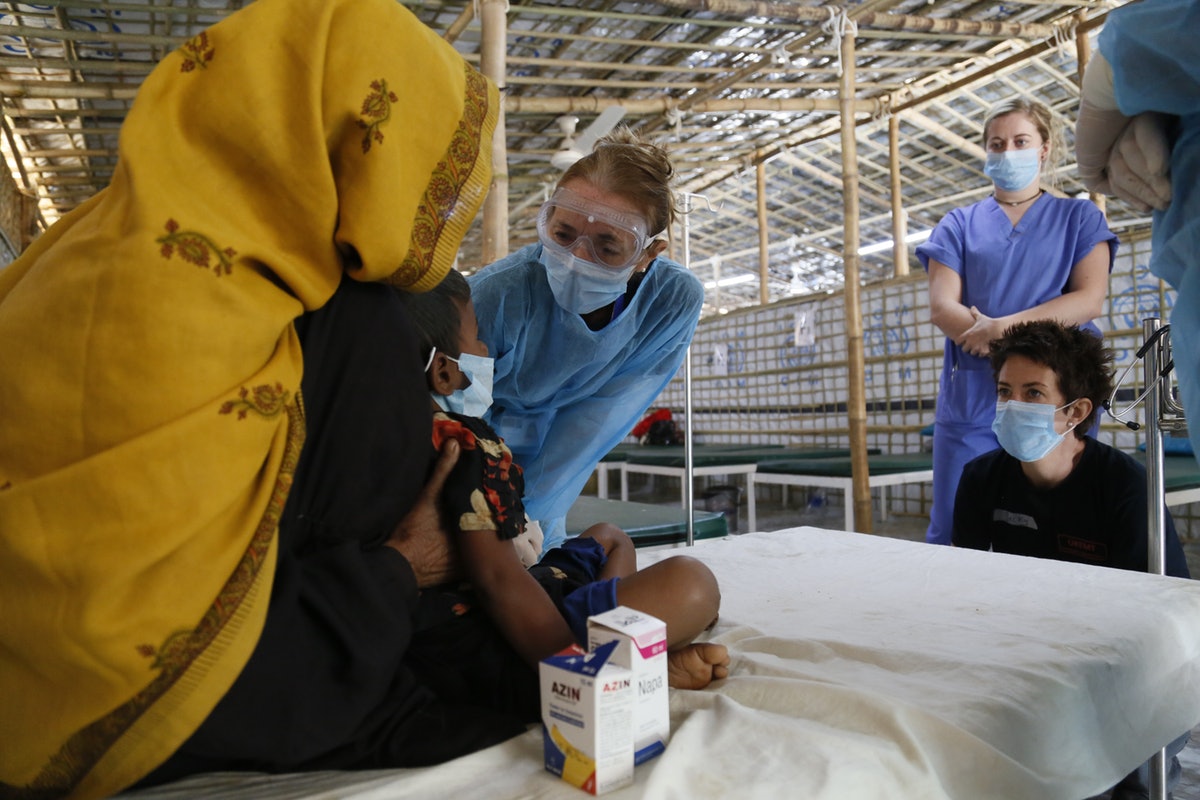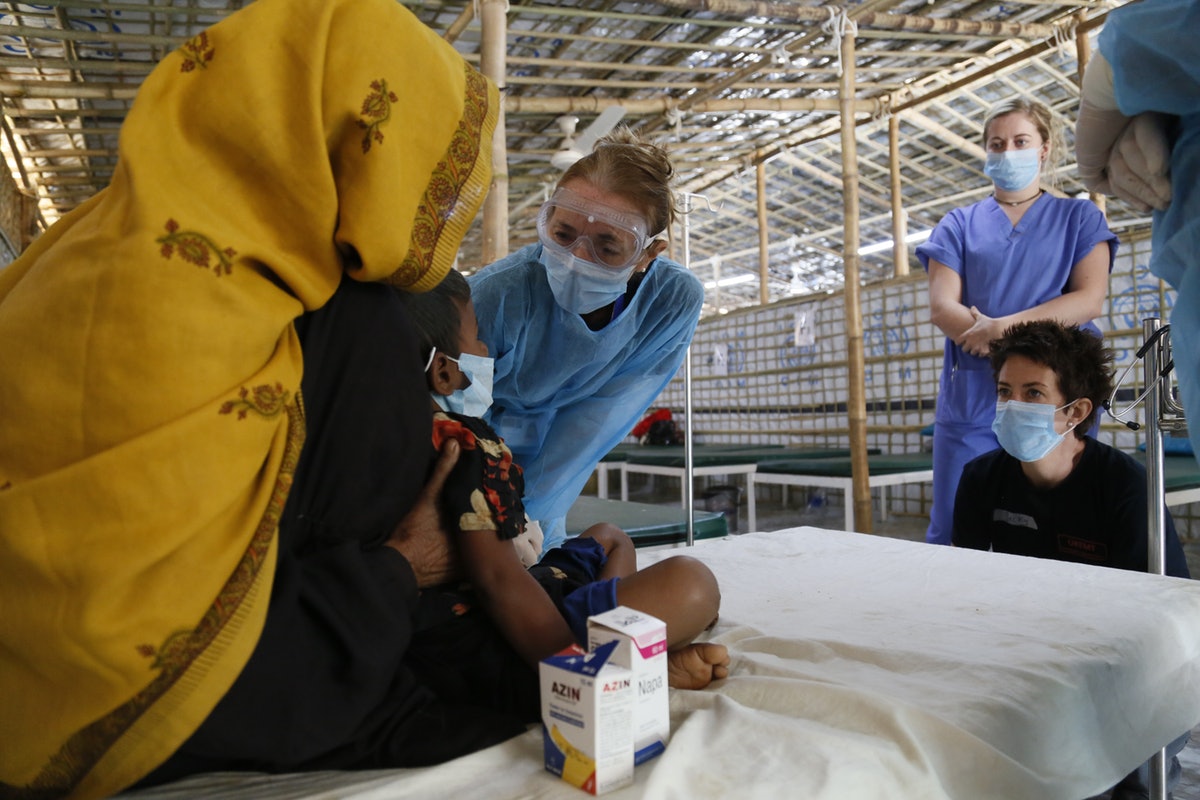
Since August 2017, over 671,000 Rohingya refugees have sought asylum and international protection in Bangladesh from targeted violence in Rakhine, Myanmar. The Rohingya refugee crisis has become one of the fastest growing refugee emergencies in the world.1
Kopernik distributes simple life-changing technologies to the most vulnerable communities living in the last mile. Kopernik crowdfunded to provide two Solevolt Enterprise solar energy systems to operate two 24-hour treatment clinics in Cox’s Bazar, Bangladesh, as well as two solar home systems for mobile clinics, floodlights and phone charging stations to meet safety and communication needs. The Solevolt Enterprise units provide solar power for lighting and medical equipment, which is critical given limited access to electricity across the refugee camps.

Rapidly constructed Diphtheria Treatment and Response Centers where Solevolt units were deployed to provide lighting and fans to these bamboo clinics (Photo credit: IOM)
The solar energy systems were initially rapidly installed to support the response to an emerging diphtheria outbreak in November 2017. For the period between November 2017 to March 2018, the systems supported two of the International Organization for Migration’s (IOM) Diphtheria Treatment Centers. Diphtheria treatment requires close monitoring over a 24-hour period to provide triage, airway management, and follow-up care. The treatment centers provided 24-hour life-saving outbreak response. As of March 2018, these treatment centers triaged 5,278 patients, of which 648 patients were admitted for diphtheria isolation and treatment. No deaths from diphtheria occurred at IOM’s clinics.
The clinics have now returned to providing general health care to camp residents. Solevolt-derived electricity allows these general health clinics to be operative from 8:00 am to 8:00 pm as well as power medical devices such as ultrasound machines used for antenatal screenings.
Kopernik is committed to finding what works, ensuring that simple technologies improve the lives of last mile communities and reduce poverty. In 2017, Kopernik implemented seven technology distribution projects and distributed 52,820 technologies in three countries, reaching 119,257 people. Other emergency responses include Mount Agung Relief through which Kopernik and partner organizations provided supplies during Bali’s Mount Agung emergency evacuations. Kopernik distributed 55,095 N-95 masks in 52 evacuation locations. In addition, 576 Nazava water filters were distributed to 102 evacuation locations reaching 9,216 individuals.


